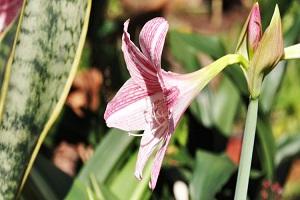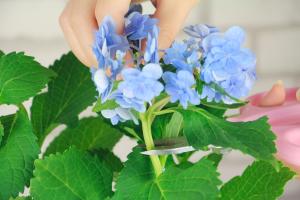Can Watering Plants at Night Be Beneficial?
Watering plants is an essential aspect of maintaining a lush and healthy garden. However, the timing of watering can significantly impact the growth and vitality of the plants. One common question that many gardeners ask is whether it is okay to water plants at night. In this article, we explore the benefits and drawbacks of night watering and provide tips for effective watering practices.
The Benefits of Watering Plants at Night
One of the primary benefits of watering plants at night is that the soil tends to retain moisture better during this time. Nighttime temperatures are generally cooler, which means that the water evaporates more slowly. This allows the plants to absorb the water gradually, reducing the risk of runoff and water wastage.
Additionally, watering plants at night reduces the risk of sunscald, a condition that occurs when water droplets on the plants' leaves magnify the sunlight and burn the foliage. When you water at night, the leaves have time to dry before the sun rises, reducing the possibility of sunscald.
Another significant advantage of watering at night is that it ensures that the plants have access to water during the hottest part of the day. Plants can lose a lot of water through transpiration on hot days, which can lead to wilting and damage. By watering at night, you are providing the plants with the moisture they need to survive the heat.
The Drawbacks of Watering Plants at Night
Like any gardening practice, watering plants at night has a few drawbacks; one of the most significant is the increased risk of fungal growth. Watering your plants at night can create a humid environment, which encourages the growth of fungi, mold, and mildew. Ideally, you should try to water your plants early in the morning, as this gives the foliage and soil enough time to dry out during the day.
Another problem with watering at night is that it can attract pests. Insects are often more active during the evening and nighttime, and the sight of moisture can attract them to your garden. To minimize this risk, avoid overwatering and ensure that the plants have enough time to dry before nightfall.
Tips for Effective Watering Practices
Whether you choose to water your plants in the morning or at night, there are several tips you can follow to ensure that your plants thrive:
Water deeply but infrequently. This encourages the roots to grow deeper and make the plant more resilient to drought.
Water the soil, not the foliage. This reduces the risk of fungal growth and sunscald.
Use mulch to retain moisture in the soil.
Water at the base of the plant, not on the leaves or flowers.
Avoid watering during the hottest part of the day, as this can cause the water to evaporate too quickly.
Conclusion
Watering your plants at night can be beneficial, but it's essential to keep a few factors in mind. While night watering can reduce sunscald and ensure that the plants have access to water during the hottest part of the day, it can also create a humid environment that fosters fungal growth. To ensure the health and vitality of your plants, follow the tips above and water according to their specific needs.

 how many times do yo...
how many times do yo... how many planted tre...
how many planted tre... how many pine trees ...
how many pine trees ... how many pecan trees...
how many pecan trees... how many plants comp...
how many plants comp... how many plants can ...
how many plants can ... how many plants and ...
how many plants and ... how many pepper plan...
how many pepper plan...































